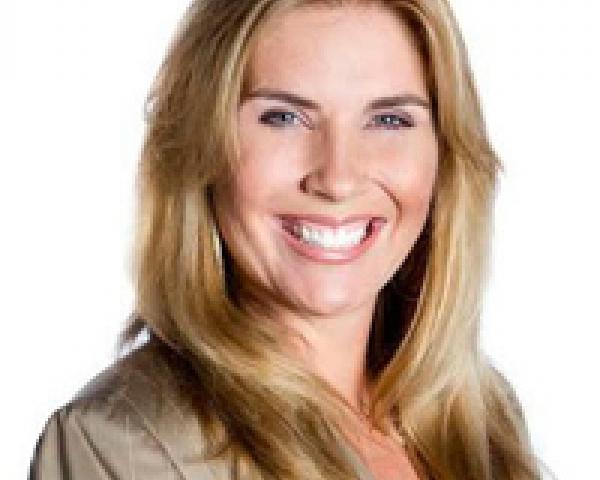OK, guys, London’s black cabs are officially an endangered species. Not just yet, but, considering that
Uber is gaining ground every day, this is going to happen at some point.
And it's not just Uber that's making traditional service industries nervous. Airbnb
has surpassed the largest hotel chain in the world in terms of total rooms available.
But, hey, why the sad face? This is hardly a bad thing. Much like traditional insurance carriers are
embracing insurtech innovations, traditional industries should be doing the same with the sharing economy. I emphasize “should.”
The sharing economy is already part and parcel of our lives, so much so that we’re not even questioning it anymore. It seems like a simple concept: leveraging underutilized assets for profit. But this is much more than a simple consumption shift.
It's also a shift in how we are accountable — and how we regulate commerce. As you know, the sharing economy is mostly unregulated by governments. This lack of regulation fosters a
massive debate that won't subside for years to come.
See also: Sharing Economy: The Concept of Trust
The question is: How does this new industry create accountability? How on earth do you get random strangers to trust that you won’t drive your car straight into a tree when they’re riding shotgun? How can you, as a client, distinguish between a legit host on Airbnb and a scam?
Haven’t You Heard of Reviews?
When it comes to the sharing economy, you can’t rely on the government to test out every service provider for you and then give you the “all clear.”
Two-way review systems are critical to many sharing economy platforms and provide the
foundation of trust upon which this new industry is built. Sellers and buyers can rate each other following a transaction. This creates two-way accountability that has allowed the sharing economy, so far, to thrive.
It all sounds pretty great in theory, but, in practice, things are not that easy because you can never really know for sure that the person behind a review — be it a stellar one or a nasty one — is telling the truth. We always try to paint the most positive picture of ourselves. It's human nature.
Some people have internal biases, and
Airbnb and
Uber are witnessing firsthand how racial prejudices affect their platforms. This is terrible and is an existential threat that needs addressing.
The challenge going forward for sharing-economy platforms is not after-the-fact, two-way ratings but how sellers react before engaging in an economic exchange with sharing-economy buyers. Stay tuned on this one.
Smile, You're Being Rated!
At first, this may seem like a crazy idea, but it works. Studies
have shown that even the illusion of being watched makes people behave in more socially acceptable ways.
Ready for a quick super-scientific experiment? Get out the beaker!
Imagine you're traveling for business and one night you stay at a Hilton, the other with Airbnb. Now, think of all the times you've left a hotel room. Then consider how you'd leave someone's residence if you stayed in an Airbnb. You also know this host will leave a public review of you as a guest.
You probably would not leave the home like this...:

...but more like this:

Most of us undoubtedly would leave the Airbnb in better shape than we would a hotel room. And that's the point of accountability in the sharing economy: It makes people behave better!
Accountability Through Reputation Capital
Rachel Botsman, one of my favorite sharing economy thinkers, has paved the way for how we understand accountability in the sharing economy through her
concept of “reputation capital.”
In an age of mobile technology and sharing economy innovation, reputation is a tangible asset that can be managed and built. Although we are at the early stages of this, we will likely soon be able to carry our reputation with us across online platforms. Some have
even argued that online reputation will be the new currency in the 21st century.
The point is that every sharing economy platform has some sort of feedback process. As a seller, your earning potential depends entirely on the management of your reputation.
See also: 9 Impressive Facts on Sharing Economy
As the sharing economy and its accountability foundation continue to grow and enter different aspects of our lives — I am thinking of healthcare and social causes — it's important to understand the complex concept of accountability, especially in a digital age where everything is recorded, stored in the cloud and then commented on a hundred times.
That's all for now, folks. Next time, we will talk about the implications of another sharing innovation that affects the insurance industry: home-sharing.
 ...but more like this:
...but more like this:
 Most of us undoubtedly would leave the Airbnb in better shape than we would a hotel room. And that's the point of accountability in the sharing economy: It makes people behave better!
Accountability Through Reputation Capital
Rachel Botsman, one of my favorite sharing economy thinkers, has paved the way for how we understand accountability in the sharing economy through her concept of “reputation capital.”
In an age of mobile technology and sharing economy innovation, reputation is a tangible asset that can be managed and built. Although we are at the early stages of this, we will likely soon be able to carry our reputation with us across online platforms. Some have even argued that online reputation will be the new currency in the 21st century.
The point is that every sharing economy platform has some sort of feedback process. As a seller, your earning potential depends entirely on the management of your reputation.
See also: 9 Impressive Facts on Sharing Economy
As the sharing economy and its accountability foundation continue to grow and enter different aspects of our lives — I am thinking of healthcare and social causes — it's important to understand the complex concept of accountability, especially in a digital age where everything is recorded, stored in the cloud and then commented on a hundred times.
That's all for now, folks. Next time, we will talk about the implications of another sharing innovation that affects the insurance industry: home-sharing.
Most of us undoubtedly would leave the Airbnb in better shape than we would a hotel room. And that's the point of accountability in the sharing economy: It makes people behave better!
Accountability Through Reputation Capital
Rachel Botsman, one of my favorite sharing economy thinkers, has paved the way for how we understand accountability in the sharing economy through her concept of “reputation capital.”
In an age of mobile technology and sharing economy innovation, reputation is a tangible asset that can be managed and built. Although we are at the early stages of this, we will likely soon be able to carry our reputation with us across online platforms. Some have even argued that online reputation will be the new currency in the 21st century.
The point is that every sharing economy platform has some sort of feedback process. As a seller, your earning potential depends entirely on the management of your reputation.
See also: 9 Impressive Facts on Sharing Economy
As the sharing economy and its accountability foundation continue to grow and enter different aspects of our lives — I am thinking of healthcare and social causes — it's important to understand the complex concept of accountability, especially in a digital age where everything is recorded, stored in the cloud and then commented on a hundred times.
That's all for now, folks. Next time, we will talk about the implications of another sharing innovation that affects the insurance industry: home-sharing.





